Do you need to hire a specialty welding shop? Literally, anything you can think of that needs welding can have a specialized welding shop created to do the job. The aerospace, oil, and gas industries need specialized welding. Any business that needs metal cut or shaped would benefit from specialty welding techniques. Welding can appear Read more
Whats New
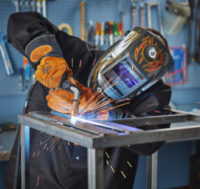
Do you need to hire a specialty welding shop?
Literally, anything you can think of that needs welding can have a specialized welding shop created to do the job. The aerospace, oil, and gas industries need specialized welding.
Any business that needs metal cut or shaped would benefit from specialty welding techniques.
Welding can appear intimidating to outsiders. Use this guide to help you choose a specialized welding company to get the job done.
 Identifying Your Specific Welding Needs
Identifying Your Specific Welding Needs
To find a quality specialty welding shop, the first step is to identify your specific welding needs. This involves determining the type of welding you require, such as arc welding, TIG welding, or MIG welding.
It is also important to consider the materials you will be working with and the thickness of the metal. Once you have determined your specific needs, research different welding shops to see if they offer the type of service you require.
Consider factors such as their experience, reputation, and certifications. It is also helpful to read reviews and ask for recommendations from other professionals in the industry.
Researching Welding Certifications
Researching welding certifications is essential in finding a quality specialty welding shop. The first step is to research the types of welding certifications available and understand their significance.
This will help you determine the qualifications that a welding shop should have. Next, look for welding shops that have certifications from well-known organizations such as the American Welding Society or the National Center for Welding Education and Training.
These certifications ensure that the shop has met specific standards and has a high level of expertise. It is also crucial to check the experience and training of the welders at the shop. By thoroughly researching welding certifications, you can find a quality specialty welding shop that will provide excellent services for your welding needs.
Consider Their Location
When searching for a quality specialty welding shop, it is important to also consider their location. Proximity to your project site can greatly impact the overall efficiency and cost of the welding process.
A shop that is located far from your project may result in higher transportation costs for materials, longer project timelines, and potentially even higher labor fees.
On the other hand, a welding shop that is conveniently located near your project can save time and money, as well as increase accessibility for communication and on-site visits. Finding a shop with a prime location can ultimately lead to a successful and satisfactory welding experience.
Qualifications and Training of Welders
When searching for a quality specialty welding shop, it is important to consider the qualifications and training of the welders. Look for a shop that employs welders who have completed a certified welding program or apprenticeship. This ensures that they have received proper training and have the necessary skills to provide high-quality welding services.
Additionally, check if the shop has any specific certifications or accreditations, as this can indicate their level of expertise and commitment to following industry standards. It is also beneficial to inquire about the ongoing training and education that the welders receive, as this shows their dedication to keeping up with the latest techniques and technologies in the welding field.
By considering the qualifications and training of welders, you can ensure that you are choosing a reputable and skilled specialty welding shop for your project.
Evaluating Quality Control Processes
When searching for a specialty welding shop, it’s crucial to evaluate their quality control processes to ensure that you are receiving the best service and results. The first step is to research the shop’s certification and accreditation, such as ISO 9001 or ASME, which indicates they follow industry standards for quality control.
Next, check if they have a documented quality control system in place, including procedures for inspection and testing. It’s also important to inquire about the qualifications and training of the welding technicians.
A quality shop will have experienced and certified welders who are knowledgeable about the latest techniques and equipment. Finally, ask for references and reviews from previous customers to get a better understanding of the shop’s reputation for quality control.
Comparing Pricing and Services Offered
Finding a quality specialty welding shop can be a daunting task, especially when it comes to comparing pricing and services offered. The first step is to thoroughly research and gather a list of potential shops in your area.
Next, ask for references from friends and family or read online reviews to get an idea of their reputation. Once you have a few options, request quotes from each shop and compare the prices for the same type of service. However, it’s important to not just focus on the cheapest price but also consider the services offered and the experience and qualifications of the welders.
A reputable shop with experienced welders may have slightly higher prices, but it will ensure quality work. Additionally, compare the services offered, such as certifications, specialty techniques, and customer service. Look for a shop that not only offers competitive pricing but also has a good track record of providing excellent services.
Examining Equipment and Technology
Finding a quality specialty welding shop like CNC Machine Shop can be a daunting task. However, one key factor to consider when making this decision is examining the equipment and technology used at the shop.
A reputable welding shop will invest in high-quality equipment and stay up to date with the latest technology advancements. When examining equipment, look for well-maintained tools and machines that are appropriate for the type of welding required.
It’s also important to inquire about the shop’s technology, such as software programs used to design and plan the welding process. A shop with advanced equipment and technology is more likely to provide top-notch welding services and produce high-quality results.
Find Out Quality Specialty Welding Shop
In conclusion, finding a quality specialty welding shop is essential for ensuring the success of any welding project. By following the steps outlined in this guide, such as researching certifications and reviews and conducting a thorough on-site visit, you can confidently choose the best welding shop for your needs.
Don’t settle for anything less than exceptional quality and service – make an effort to find the right specialty welding shop for your project. Start your search today and experience the difference a top-tier welding shop can make.
Did you find this article helpful?

If you’ve ever seen a construction site, you know that a lot is going on. You might see numerous types of construction vehicles have been designed to serve different purposes. Construction vehicles provide a valuable service to construction sites. They enable workers to move heavy objects and accomplish tasks faster. With so many types, it Read more
If you’ve ever seen a construction site, you know that a lot is going on. You might see numerous types of construction vehicles have been designed to serve different purposes.
Construction vehicles provide a valuable service to construction sites. They enable workers to move heavy objects and accomplish tasks faster.
With so many types, it can be difficult to choose. The types differ in their technology, their size, and what jobs they accomplish.
Be sure to find out about the different types of construction vehicles before you shop for one. This can help you find the one that fits your needs.
Here are the different types of construction equipment.
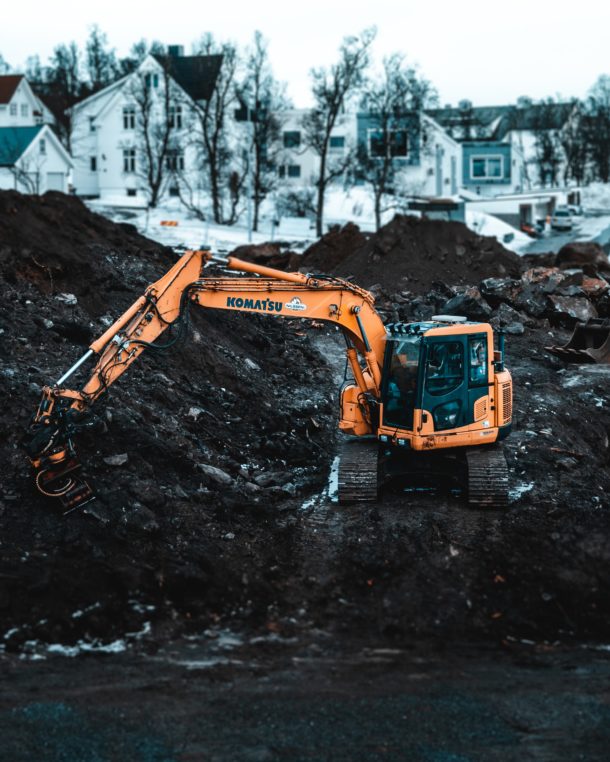
Bulldozers
Bulldozers are characterized by their massive blades at the front, allowing them to push and move large quantities of soil, sand, or debris. These versatile machines come in various sizes, from compact models suitable for smaller projects to colossal dozers that tackle the most massive earth-moving tasks. Bulldozers are a testament to the power and precision that modern engineering and union labor can achieve together.
Excavators
Excavators are capable of digging, lifting, carrying, and pushing large amounts of dirt and material. The operator sits in the cab above the tracks and moves levers to control the boom, bucket, and tracks.
Many excavators have extra attachments for specific tasks such as jackhammering, sawing, or drilling. These can move quickly and effectively to move dirt, demolish buildings, or level plots of land.
The machines are also used to install pipes, drive pilings, and grade land. This type of construction vehicle also comes in a wide range of sizes, so it can fit in tight places where larger vehicles may not.
Loaders
This type of machine has been used for centuries to move material in construction and road works sites. It comes in two basic forms, the wheeled and the tracked loaders. Wheeled loaders are more common, cheaper to produce, and usually lighter weight, while tracked loaders are more powerful and able to operate in a wider variety of terrain.
Loaders are mainly used to move earth and rock, load trucks, and plow snow. It is powerful enough to clear away debris, dig ditches and trenches, and backfill these after a job is complete. Also, it is very versatile and can make any construction job easier to complete.
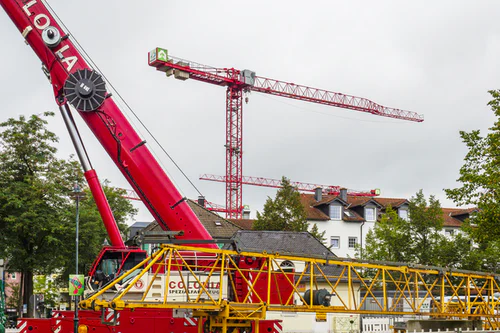
Cranes
A crane is a large construction equipment with a thin extended arm that can move horizontally and vertically. They are mainly used for construction lifts for heavy materials, such as steel beams and pre-cast concrete units. Also, they can be used for other basic construction tasks such as drilling and digging.
Cranes use counterweights and pulleys to help them lift objects using a remote or lever. They can be quite large, with some featuring booms that can extend up to several hundred feet. Also, they not only help with lifting heavy loads but can also help with assembling parts or components of a building.
This machine can even transport materials or other objects from one location to another. They are essential for any large or complex construction project and offer a safe, efficient way to move objects from one place to another.
Backhoes
Backhoes are mainly used to dig and move large volumes of dirt, sand, and gravel. It consists of two arms, an arm attached to a tractor on one side, and another arm with a bucket or scoop at the other end.
When operated, the scoop can rotate and is capable of scooping up and moving large amounts of material. The tractor can also move the backhoe around construction sites so it can reach the areas that need to be dug or moved.
Backhoes are versatile and allow construction crews to quickly and efficiently work on projects. Also, backhoes are reliable and durable vehicles and can withstand long hours of beneficial operation.
Graders
Graders have a long arm with a blade at one end, which is hydraulically powered to move up and down. This allows for precise grading and leveling of roads, driveways, highways, and parking lots.
The blade can finish grades, as well as moving materials like soil, sand, gravel, and snow. They are often used in conjunction with other heavy construction machines, like bulldozers and loaders.
Graders are essential in the construction of flat, even surfaces and are highly valued for their versatility. There are also modern graders with GPS systems. It allows operators to accurately grade even the most difficult terrain.
Dump Trucks
For many outdoor construction jobs, dump trucks are essential tools. They can haul materials, including dirt, gravel, sand, and rocks.
Dump trucks transport these materials to and from the job site so the construction crew can start building. They also help clean the site by hauling away debris.
The beds of dump trucks have doors on the back that can be raised, allowing the material to be quickly and easily dumped into a pile. They come in various sizes and can accommodate different loads.
Rollers
The main purpose of rollers is to compress and flatten the surface of a construction site. This type of road equipment is commonly used for the initial flattening of land to create smooth surfaces for roads, bridges, and other structures. They use a steel or rubber drum to press down the dirt and level the land.
Based on the model, these vehicles may be able to compress both soil and asphalt surfaces. They can also use a mix of water and other soil-stabilizing solutions to hold the material together.
Rollers are an easy and efficient way to generate the flat surfaces necessary for the construction of buildings and roads. It also maintains the condition of the ground during and after building.
Concrete Mixers
Concrete mixers are mainly used to mix concrete for large projects such as bridges, highways, and large buildings. The mixers are typically mounted on trucks, making them mobile and necessary for large sites. They come with a spinning drum that helps mix the concrete and a water tank to keep the mixture moist.
Additionally, they often come with extra features such as sprayers, tippers, and miners. Concrete mixers are typically driven by a diesel engine and have a hydraulic system to be able to move and do their job more efficiently.
Discover the Different Types of Construction Vehicles
In conclusion, construction vehicles are key elements in construction projects. There are different types of construction vehicles available, and each has its purpose. Contact a service provider today to learn more about construction vehicles and find the right one for your project.

In a landscape where every penny counts, tightening the purse strings and trimming down waste in your warehouse operations can be the golden ticket to soaring profits. But where to start, you ask? There are as many different views on that as there are businesses, but cutting down on the amount of waste you produce Read more
In a landscape where every penny counts, tightening the purse strings and trimming down waste in your warehouse operations can be the golden ticket to soaring profits. But where to start, you ask? There are as many different views on that as there are businesses, but cutting down on the amount of waste you produce is definitely a strong contender.
That being the case, let’s take a look at some of the simplest things you can do to drastically cut down on waste and boost your bottom line right now.
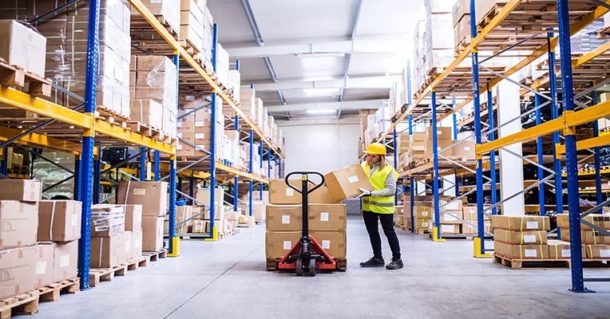
-
Smart Packaging Choices
Yes, we are in the digital age, but the importance of physical packaging cannot be underestimated. Reevaluate your packaging strategies to identify potential areas of wastage that could be costing you money. Opt for reusable packaging materials that can stand multiple uses, cutting back on the wastage and costs associated with single-use packaging.
-
Always Try to Repair First
With so many CNC repair companies and manufacturing parts suppliers, then it really does not make sense to replace your machinery too often because it has broken down, It will almost always save you money if you take the time to source parts and have repairs made instead. Of course, if a piece of equipment is coming to the end of its natural life, or repairs will require too much downtime, this might not be the case, but otherwise, it’s pretty good strategy. Evaluate each case as it comes and your wastage will undoubtedly be less.
-
Efficient Lighting Solutions
Switching to energy-efficient lighting solutions like LED lights isn’t just a nod to green practices and the whole sustainability thing. It is also a good way to stop wasting electricity within the warehouse, These days, LED lighting is just as bright as many older style bulbs, so you do not have to worry that your employees will not be able to see to do the job properly, and you will end up with lower bills at the end of each quarter. What’s not to love?
-
Inventory Management
An overflowing inventory can be a breeding ground for waste. Implement smart inventory management systems to maintain optimum stock levels, preventing waste through spoilage or obsolescence. Keeping a keen eye on your inventory can unlock potential savings and enhance operational efficiency.
-
Employee Training and Engagement
Engaging your team in waste reduction initiatives can turn out to be a masterstroke. Train your employees to identify and report wasteful practices and encourage them to propose solutions and they will be your best asset when it comes to cutting down on wastage abs saving money. They may even come up with some great ideas that increase your efficiency more than you might have thought possible because, after all, they are the people doing the job on the ground floor day after day.
Cutting down on all manner of waste in your warehouse is an ongoing process that mat rake you some time, but the above are all good places to start, so what are you waiting for?

Is your construction business doing well? Could it be doing better? If it can be, you might be considering growing your construction business. Not only will this take you to new heights, but you’ll see more and more revenue come in over time. That leads to more profits for your company, a lot of which Read more
Is your construction business doing well? Could it be doing better? If it can be, you might be considering growing your construction business. Not only will this take you to new heights, but you’ll see more and more revenue come in over time.
That leads to more profits for your company, a lot of which could go directly to you. You’ll need to know how to achieve this, however. While this can be a daunting process, it isn’t an impossible one.
By using the right strategies and focusing on a few tips, you could start growing your company faster than you’d think. It’ll also be sustainable, making it more than worth focusing on them.
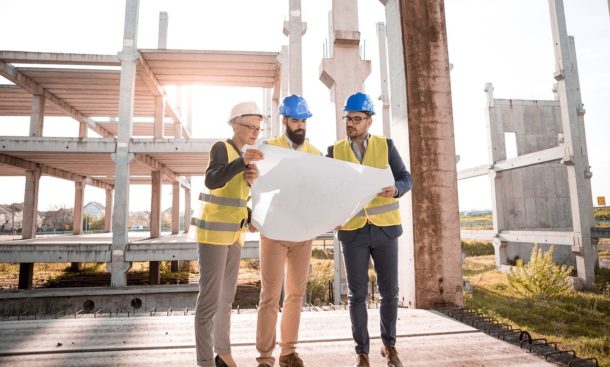
- Get New Equipment – The equipment your company uses plays a significant role in the quality of service you can offer. Make sure you have the right equipment in-hand to help fuel your growth. Whether you’re looking for the best benchtop jointer or anything else, you’ll need to invest in this. Despite how expensive this can be at the start, it’ll reap dividends in the long-term.
- Build A Great Team – The team you have in place is one of the most important parts of your company’s success. You can’t start growing your construction business if you don’t have the right people. Make sure they’re as skilled as possible and can work well together. They’ll end up being the fuel for your company’s success going forward.
- Play To Your Strengths – Your company has particular areas it does better than others. These are your strengths and they’re something you should focus on. By playing into them, you can develop more and more of a reputation for being the best in that particular area. While you’ll still need to cover your weaknesses, you should put your strengths front and centre.
- Focus On Customer Service – You’ll already know you’ll have to put effort into doing high-quality work so you can keep customers coming in. You’ll have to put just as much effort into keeping customers happy in other ways.The way you treat your clients is just as important as the work you end up doing. Make sure your customer service skills are up to par to get this done.
- Make Smart Decisions – You’ll have to make countless decisions for your company. You’ll end up making more than you’d think, and you’ll have to put a lot of thought into them. Make sure these actually work for your business and play into your larger goals. While that means thinking long-term and spending more time making these decisions, it’ll be more than worth it in time.
Growing your construction business is vital if you want to increase your revenues and generate more profit. You’ll have to know how to do this sustainably, however. While that could seem difficult, it shouldn’t have to be.
With a bit of time and effort, you wouldn’t have a problem reaching the heights you want to reach. You’ll have a larger, more profitable company before you even know it.

Handling material in enterprises is often challenging, especially when you’re trying to do it sustainably. You want to run an efficient business and take care of the environment at the same time, but it’s hard. That’s where sustainable material handling enters the picture. This technique enables you to fulfill your business’s criteria across multiple domains Read more
Handling material in enterprises is often challenging, especially when you’re trying to do it sustainably. You want to run an efficient business and take care of the environment at the same time, but it’s hard.
That’s where sustainable material handling enters the picture. This technique enables you to fulfill your business’s criteria across multiple domains, enabling you to serve customers and clients better.
But what does it actually mean? Well, that’s what you’re about to find out. Here we take a look at eco-friendly materials management, how it works, and what you need to know.
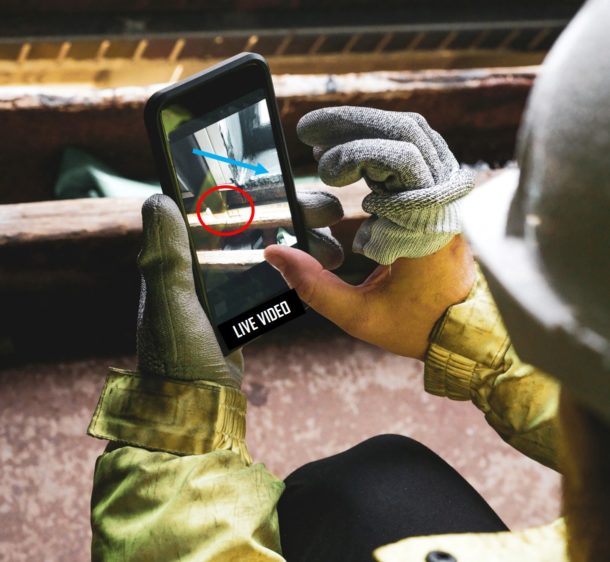
Reusable Packaging And Containers
Reusable packaging and containers are essential for sustainable material handling practices. Solutions like reusable crates and bins, prevent the need to continually cycle through containers and other vessels. Each item has multiple lives and is usable nearly an infinite number of times. This reduces waste in construction or other types of work, enhancing your business’s green credentials.
Pallet Management
Working with a used pallet supplier is also something more and more eco-conscious firms are doing. Making the best possible use of resources and effectively managing wooden pallets helps both the environment and businesses’ bottom line.
Pallets are among the most reusable, yet neglected aspects of material management. Many firms throw away pallets before they reach the end of their serviceable lives by mistake. This throwaway approach causes additional waste and leads to lower business efficiency.
Green Supply Chain Management
Green supply chain management practices can also enhance your firm’s sustainable credentials. Companies that invest in lower carbon practices can reduce their net contribution to atmospheric CO2 and cut energy expenditure. Often, solutions are simple, such as moving transport hubs closer to target markets or installing renewable energy systems to power on-site activities. In rare cases, you may also notice substantial energy use improvements by installing solar panels.
Eco-Friendly Equipment And Machinery
You can also make material handling more eco-friendly, by using the latest and greenest equipment. Electric and hybrid vehicles are now widely available for companies to use, and many jurisdictions still offer incentives.
For example, you could make your delivery company significantly greener and cheaper to run by adopting one of the new electric vans available from brands like Mercedes. You could also replace inefficient older equipment with new models that run more flawlessly.
Education And Training
Another approach to sustainable material handling is to educate and train your colleagues. Having a staff that understands how to move materials in a green manner is more likely to implement the kinds of practices you want to see.
You could begin with something simple, offering resources or various training programs. These opportunities could teach staff how to handle materials efficiently and reduce the risk of loss. You could then move on to the benefits of this type of handling, and why it should be a priority for the people in your organization.
Challenges
Finally, ensure you address the challenges of materials handling solutions. Ensure you help colleagues move past their “pain points” or any factors that are preventing them from operating how you want.
